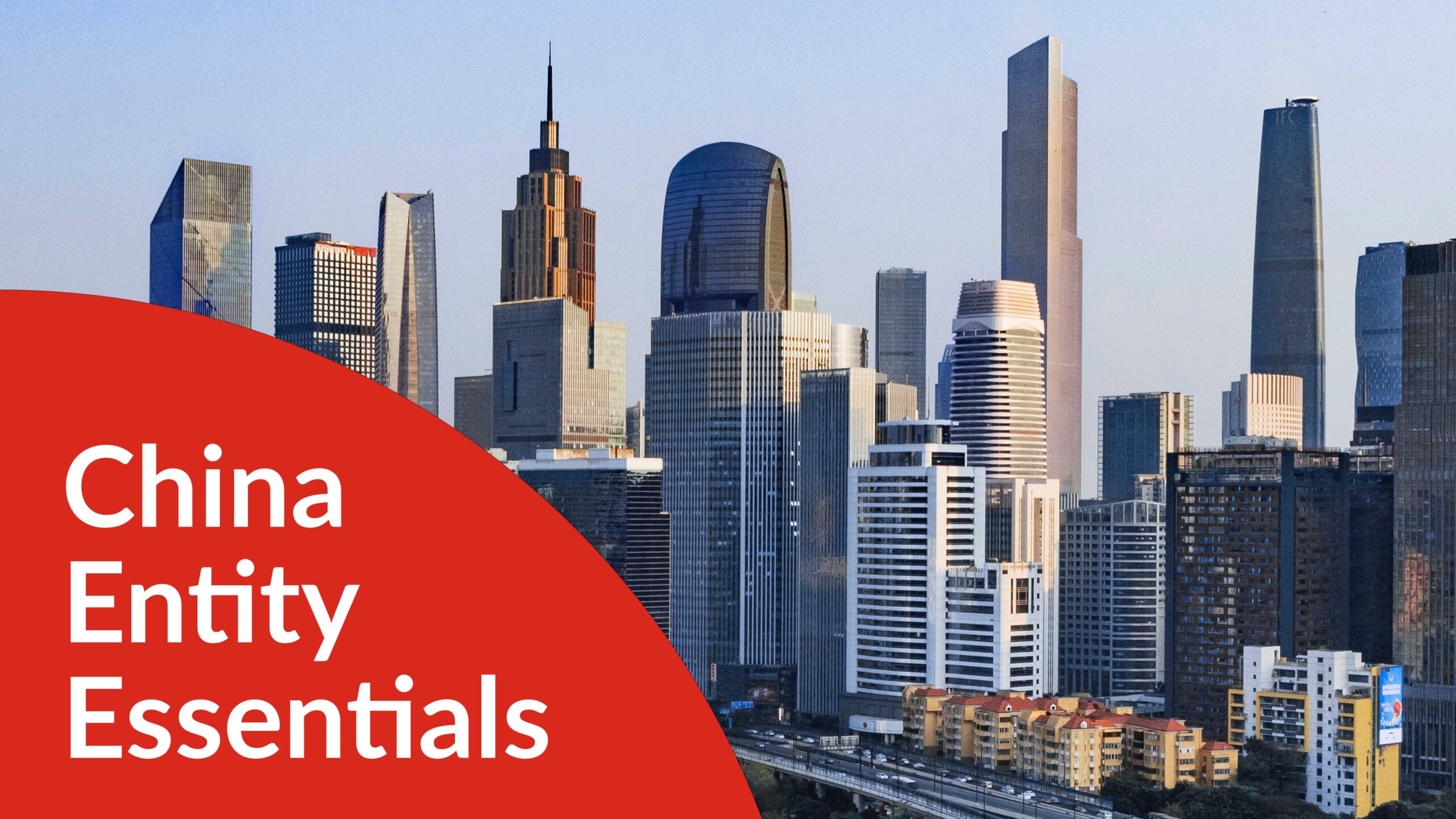As a supply chain company first and foremost, Kinyu engages with many product, supply chain, and manufacturing leaders about their operations in China. In our experience, the term “Employer of Record” (EOR), an entity that businesses can use to outsource employment, does not resonate with them. It is a phrase likely to arise only in HR or legal circles, and almost all the articles about EORs come from law or accountancy firms. Yet, outsourcing hiring in China can offer significant benefits to companies.
However, as Kinyu is the foremost EOR focused on China and the supply chain, it’s essential to contextualize this within China and the supply chain. This includes how you can use an EOR and the essential considerations involved. So, let’s begin:
What is an Employer of Record?
An EOR serves as a third-party service provider, taking on the legal responsibilities associated with being an employer. This outsourcing arrangement aims to relieve companies of administrative burdens, enabling them to concentrate on core business functions.
At its core, an EOR handles various aspects of employment, ranging from payroll processing and tax compliance to benefits administration. This comprehensive approach ensures that the workforce complies with local, regional, and national labor laws and regulations.
Engaging an EOR mitigates risks associated with legal compliance, which is one of the primary advantages. By entrusting the EOR with HR administration tasks, companies can navigate employment issues, maintain accurate record-keeping, and uphold contractual compliance.
How can Supply Chain Leaders Utilise an EOR in China?
The EOR model facilitates international expansion by providing a scalable and flexible solution. This is particularly beneficial for companies looking to place personnel near key parts of their supply chain globally without the need to establish legal entities in each country.
Since China’s labour laws are unfamiliar to most overseas businesses, and considering the language barriers and geographical distance, the benefits of using an EOR in China are even more significant.
A key example of this is hiring across different regions in China. You must have an entity in the city where you wish to employ someone to pay the right social insurance. To support a team across China’s vast geography, a competent EOR will have entities in various regions.
Furthermore, there are small but significant differences in labour regulations across different regions of China. Managing these variations can be simplified by using the right EOR.
What Else do I Need to Consider with an EOR?
Some points need to be considered when choosing an EOR.
First and foremost, there is a cost associated with EORs. They can charge substantial fees in addition to the payroll of the people you wish to hire.
It’s important to understand employee security in these outsourced employment relationships. Many EORs have automated platforms, which have taken the human element out of the HR function. While this has allowed for a scalable business model for the EORs, in our experience, Chinese employees can feel a bit insecure about being employed by a company that has little relevance to their work. After all, their salary and social insurance are key factors in their livelihood – so trust in your employer must be addressed when using an EOR.
Industry relevance is another important factor for HR. The business model of global EORs is an adaptation of business process outsourcing, which revolves around many people sitting in an office environment with homogeneous HR issues. However, many industries expose employees to different risks and scenarios, requiring a tailored HR strategy.
Suppose supply chain and manufacturing are examples: China-based employees may need to travel regularly and visit factories. Just these two differences in the working environment should prompt the following impact analysis:
- Employer liability insurance: Is there adequate coverage for such activities?
- Travel expenses policy: Do we have the right policy to support this?
- Health and safety: Have we identified the environment we are sending our employees to and ensured they follow the correct procedures?
- The employee handbook: Does the handbook provide adequate coverage of the above and more about visiting factories?
- Overtime: Do we have the appropriate policy in place to control and compensate for overtime when traveling to factories?
If your China team member, employed under an EOR, engages in product development, it also implies addressing intellectual property implications.
What is Different about The China Desk by Kinyu?
The China Desk by Kinyu is a product and supply chain-focused EOR, which enables us to address the above challenges with the following strategy:
- Adding value instead of increasing cost: The China Desk includes a Virtual General Manager, where we engage with the employees and monitor client operations. China Desk employees also have access to The Kinyu Resource Platform, a network of strategic supply chain service partners and consultants to support their operations.
- Building a strong relationship with all employees hired under The China Desk: Given Kinyu’s focus on China and the supply chain, we understand and empathize with the personal, societal, and professional challenges that your team members may encounter. We prioritize engagement events to foster a sense of belonging and ensure that they are familiar with and trust the organization that employs them.
- Industry-focused approach: We have policies in place for product managers, engineers, and Quality personnel. We also can flag issues within the supply chain based on regular calls with the team members and address them promptly.
- Concentrated talent pools: Before using an EOR, you need the talent. With our industry focus, Kinyu can promote itself in the labour market by offering attractive products, supply chain, and manufacturing jobs. We are able to attract top talent for the benefit of our clients.
- Targeted HR strategy: Most Employers of Record will have a salary calculator to inform you about the administrative costs of employing staff on the ground. But Kinyu goes a step further, with a salary calculator that not only highlights administrative costs but also analyses your product sector and role requirements, and suggests the right salary package for the position you want to hire.
- Flexible Options: Not everyone is ready to hire full time. The China Desk has a Streamline option to allow companies to hire part-time personnel for trials and project work. This unique offering is only possible due to our supply chain focus.
Choosing the right EOR partner is paramount, ensuring compliance and effective workforce management. When implemented effectively, the EOR model empowers companies to streamline operations, reduce administrative complexities, and strategically manage their global workforce.
China and the supply chain are integral to Kinyu’s DNA. Beyond the administrative function, The China Desk aims to act as a comprehensive solution in the region. As an EOR, strategic advisor, and resource platform, it enables supply chain leaders to enhance supply chain efficiency and effectiveness on the ground.
What Should You Do Next?
- Work out your hiring budget with our supply chain-focused salary calculator.
- Download a case study to discover how The China Desk has benefited companies similar to yours.
- Schedule a meeting to speak with one of our team members.



